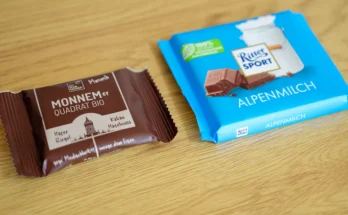The need to give shape to reality began with the first Homo sapiens who carved a flint ax in the cave, blow after blow. It’s laborious, it requires craftsmanship, but there’s no alternative: turning raw materials into useful tools for life requires friction, inconvenience, even irritation when things don’t work.
Fast forward a few millennia, today only the bricklayer suffers from attrition. He tells ChatGPT, “Build a house” and nothing happens. Instead, intellectual work has become soft, because language models remove the friction of writing. LinkedIn was filled with posts written by ChatGPT; and TikTok, from videos made by Sora. According to SEO company Graphite, more than half of English content on the Internet is created by artificial intelligence.
Charlie Warzel reflects Atlantic on this type of content, which already has a specific name: slope. ‘Bazofia’ is a good translation. It floods us, giving the language a melting, honeyed and narcotic consistency. It gives us a shapeless, meaningless, but easy reality: I have the feeling of being a nine-year-old girl, with all my teeth, who would like to stuff them with porridge. And be careful, because that intellectual puree is, in turn, food for linguistic models. Perhaps this vicious cycle of autophagocytosis will lead to artificial intelligence madness.
The problem is that since then friction runs through real intellectual work sapiens he was in the cave. Wherever the golden nugget of ideas is found, the hinges creak with an unbearable noise. Searching for it generates discomfort, finding it too: reality is as hard as flint and the thinker, even the most expert one, must have the ability to shape the world. This is how you work on ideas: blow by blow.
The pompous name of “creators” has been given to those who fill the Internet with content, but in reality they are the new exploited class of cognitive capitalism. Templates eliminate friction for the creator, who becomes more productive. Based on quantity, it manages to attract the attention of the algorithm, which is so friendly to addictions. Give ChatGPT a couple of ideas and write a post, an article, a book. Amazon has limited the number of books that the same person can self-publish each day to three, so as not to turn the platform into a churrería.
We understood business and philosophy (or art) as two irreconcilable life paths. Businessman chases money; the thinker and the artist seek the truth. But cognitive capitalism has solved the dilemma: digital creators produce content to make money. The less friction, the greater the benefit.
Uniting the capitalist and the thinker in the creator is the latest trick of techno-feudalism: under the lure of monetization, autonomous thought is reduced and creativity is externalized, that is, the transcendent, dreamy and subversive breath of man. It’s all part of the anti-intellectualism in vogue: here’s the White House, happy to create dirt.
Since things are moving quickly, I predict that the tidal wave will soon engulf the “creators” and their audiences. The greater the confusion between what is true and what is false, the more we need journalists, that is, professionals capable of identifying what Hannah Arendt called “the modest truths of the facts”. Other emergencies will also need to be addressed. There are artificial intelligence companies that, for a few euros, digitally resurrect the dead: they are chatbots that imitate the voice, style, personality of the loved one. To clarify the pair of opposites “being dead/being alive”, that is, between reality and fiction, intellectuals will be increasingly needed.
Because the big problem with garbage is that it distracts, but it doesn’t provide meaning. Where there is something important to know there is friction in learning it. Plato warned us: “Beauty is difficult”. When you abandon yourself to what is easy you get used to living in that ugly, false and senseless dirt. It will soon be seen that a life without friction is a life without meaning.
Intellectual work entertains some of us, but the effort to shape experience is universal, creative sapiens In sapiens. This is why the desire for friction already appears around the corners: from those who go hiking to feel the gust of wind cutting their faces, to those who turn to ceramics to break the clay with their fingers.
Soon the most appreciated ability will be to think for yourself, radically, with judgment and originality. Being an intellectual will once again become a renowned profession. Why sapiens he understands himself with imagination, thought and words, not with dirt. Society will search the cave for the hominid who, like the flint axe, shapes the world blow by blow. After all, thinking has always been physical work.



